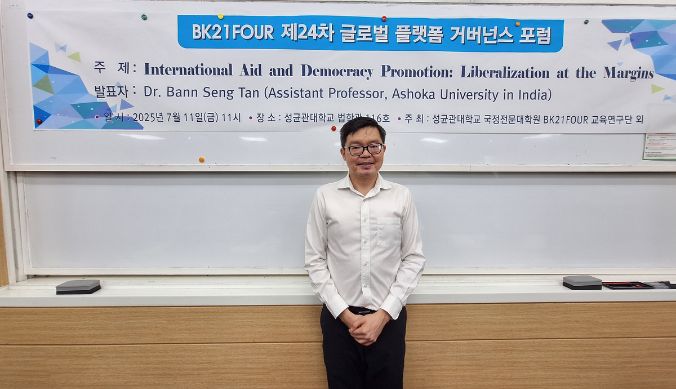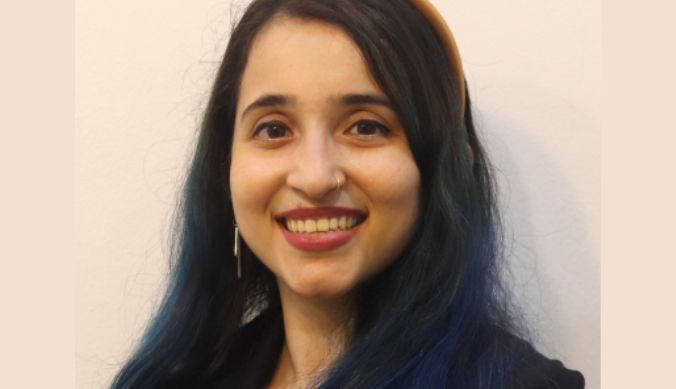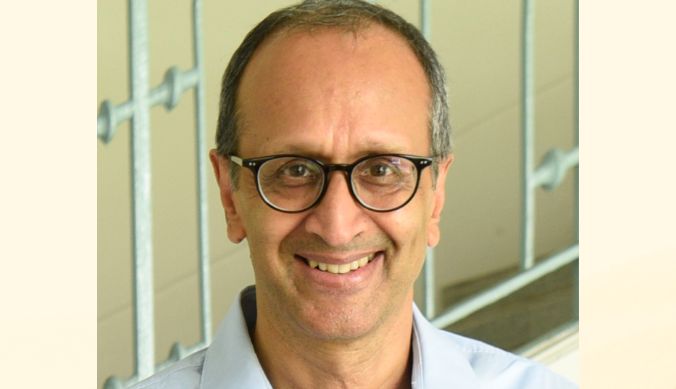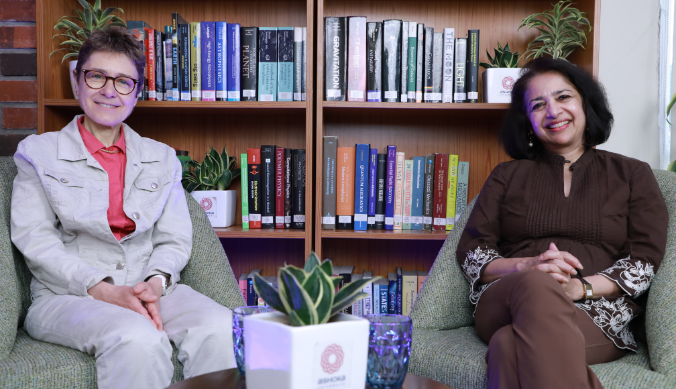The Story of Saajha’s Impact: Redefining Parental Engagement in Indian Education
YIF Alumnus Saransh Vaswani (YIF ’13) named as 2025–26 Skoll Scholar for Social Impact Leadership by the Skoll Centre for Social Entrepreneurship, Said Business School, Oxford University.
Saransh Vaswani believes lasting change begins at home with parents. For over 11 years, he has been working at the intersection of community and education, building systems that support parents from communities facing economic and social barriers to become partners in their children’s learning. As the Co-Founder and Director of Saajha, their efforts have reached children across 2000+ government schools in Delhi, Maharashtra, Jharkhand and Karnataka since its inception in 2014.
But his journey didn’t start here. Raised in Jhansi, Uttar Pradesh, Saransh grew up in a household where questions were encouraged and curiosity was valued. These early experiences shaped Saransh’s approach to leadership, grounded in questioning the status quo, and building platforms for dialogue and action. While his first social venture, a startup for rural artisans, didn’t succeed, it taught him resilience and reaffirmed his belief in community agency. That clarity led him to build Saajha, where he and his team reimagined parent-school relationships and support for them at home. Saajha is catalysing India’s public education reforms through parent and community leadership. They are building an ecosystem for parents to feel connected and supported in their efforts to impact the lives of children and drive transformative change. Training, personalised support, policy reforms, and adaptive technology have been their strategic drivers to enable parental participation.
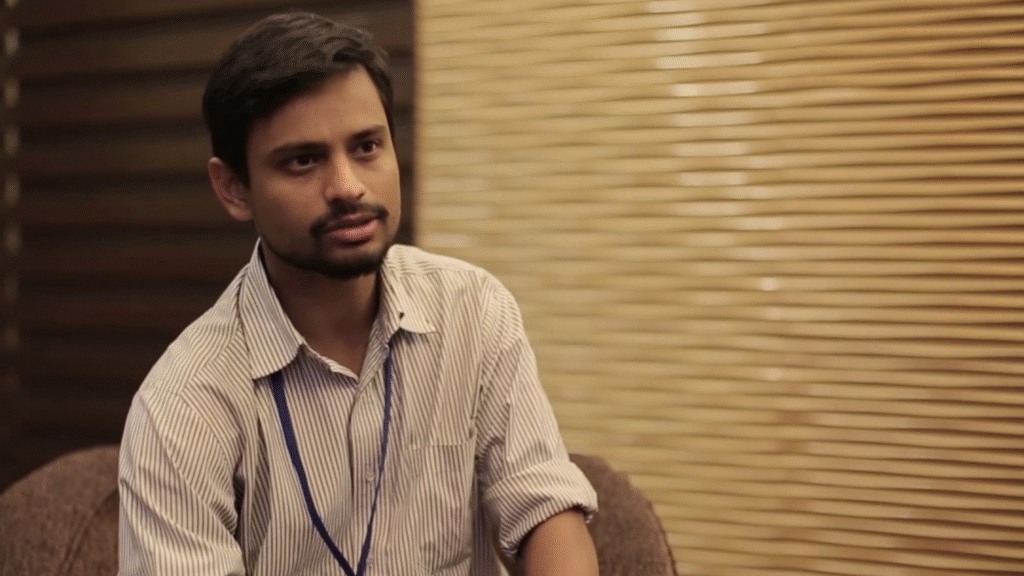
A theatre enthusiast, Gandhi Fellow, Young India Fellow (2013), Echoing Green Fellow (2014), Ashoka Fellow (2021), and SPC-Agency Fund Social Impact Fellow (2021), Saransh often calls himself a “serial fellowshiper.” Most recently, he was awarded the Skoll Scholarship (2025) to pursue MBA at Oxford’s Said Business School. He will be joining a global network of changemakers committed to advancing social impact through systems leadership. This scholarship is designed to help social entrepreneurs improve their knowledge of market-oriented practices to be more effective in their subsequent social change pursuits.
We recently spoke to him about his early beginnings, entrepreneurial journey and future aspirations, here is what he had to share:
Looking back, what significant gaps in the public ecosystem first caught your attention?
During my time teaching in a government school in Rajasthan, an interaction deeply impacted me. I met a student named Vinod. He was in Class 5 but couldn’t read or write Hindi. He would draw the alphabet when given homework by his teacher. I worked with him for some time, but had to leave the school for a while. When I returned to the village a year later, Vinod had dropped out of school to work in a hotel in Gurgaon with his father.
That day, when I met Vinod’s mother. I could feel her helplessness. She wanted Vinod to stay in school, but didn’t know how to make that happen. That moment stayed with me. That’s when I realised the deep systemic issues in our education system and the disconnect between schools and communities, and the lack of support parents have to support their child’s learning.
When Saajha began, what were you setting out to build? How has that foundational intent evolved with scale and time?
When we began Saajha, our goal was to bring parents into the conversation around education, especially in public schools. We started by working with 30 schools in Delhi, focusing on strengthening School Management Committees (SMCs). But as we spent more time on the ground, we realised that this work had to go much more than committee meetings.
We saw that parents, especially from communities facing social and economic barriers, were often left out of their children’s learning journeys. Many of them believed they had nothing to contribute. This belief wasn’t their fault. It came from years of being excluded and overlooked. But research shows that when parents are involved, children do better. They attend school more regularly, perform better academically, and grow in confidence and social skills. Over time, we understood that what was missing was not just a system but a relationship. A relationship built on trust, communication, and support. So we shifted our focus. We brought together parents, schools to openly talk about and solve issues that were getting in the way of children’s learning. These early efforts helped build trust and laid the foundation for larger change.
As we grew, we knew we had to scale in a way that kept this trust at the center. We built a simple digital platform that could work on basic mobile phones. It gave parents access to information, support, and connection. Through these efforts, we’ve reached thousands of parents across the country.
Saajha’s work redefines parent-school relationships. Why is it foundational to systemic change?
At Saajha, we believe that involving parents in education shouldn’t be performative. It’s not just about having them attend a meeting. It’s about recognising their dignity and respecting their stake in their children’s learning and development. Parents already understand a large part of their responsibilities and are eager to find the right support to support their children. When systems are built around mutual respect, collaboration, and the power of community networks, real and sustainable change follows.
We are now in pursuit of building a nationwide community of parents to actively support their children’s education. Our model connects experienced, “model parents” with others through a free helpline. These model parents provide peer support, discuss educational challenges, and co-create action plans. They also assist parents in accessing and effectively using available educational tools and resources. Our platform captures data from these interactions, helping to understand parent concerns, tool usage, and outcomes to improve support services. Our core impact lies in enabling parents to support their role in their child’s success, building confidence, improving learning environments at home, and fostering long-term, generational change.
Many parents you work with may not have completed school themselves, and yet you ask them to step into roles as collaborators in governance. What shifts are required to make that possible?
The question shouldn’t have a “yet.” Education levels might have less to do with taking responsibility for ensuring the system works for our children. The knowledge around how the system works can be gathered and understood by anyone who wants to engage with it. It is this knowledge, sometimes, that becomes the barrier, and it is independent of education levels. It’s the ability to speak the language of the system that often becomes the obstacle. If one learns this, then it’s about practising it and engaging with the system. The question for us, essentially, is about simplifying the system and the language it speaks for the parents we work with. Also, the question for the system is: how does it simplify itself?
Technology has allowed you to reach thousands of parents, but digital inclusion is layered with its own hierarchies. How do you balance scale through tech?
We look at tech as a bridge, not a substitute for relationships. Our helpline, for example, allows parents to call and speak to someone in their language. The driving force of our work is relationships. I have often asked parents, “Why do you continue to talk to us? Why do you engage with us, given that you might be receiving hundreds of calls every day?” And often, the response has been, “Nobody talks to us like this. Nobody asks for permission before speaking to us.” While technology is an enabler in scaling our efforts, it’s the centrality of conversations held with dignity and respect that allows us to have deeper engagements with families.
What have been your key learnings in navigating state machinery while staying rooted to community accountability?
Working with government systems requires a balance of patience and persistence. It’s about identifying champions within the system, aligning with existing policies, and demonstrating what’s possible. It also requires humility to let go and to allow the work done to be carried forward (or not) by the government.
Working with the government has also taught us the importance of staying close to the community we work with. We’ve learned to continuously check in with them and adapt based on the feedback we receive from parents.
A big question that is now helping us refine our understanding of sustainability is: How do we enable our work to be anchored by the government, but truly powered by the community?
Were there moments of redirection in Saajha’s journey that you now recognize as necessary for growth?
One of the most pivotal moments of redirection in Saajha’s journey came in 2016, when we were invited to scale our work from 90 schools to over 1,100 government schools across Delhi. Up until that point, our work was rooted in community engagement at a grassroots level. The prospect of working across a system that served 1.5 million children was overwhelming, and we hesitated. We knew the model we had built in 90 schools could not simply be replicated at that scale.
But that moment demanded a shift from operating as a small team working closely with communities, to designing a scalable model that could be implemented system-wide. We had to reimagine how we worked, develop new systems, collaborate with many more people, and most importantly, redefine what it meant to scale with intent. Working on this issue over the 5 years helped us learn the impact such work might have on children and families. We learned that scale is not just about numbers but about learning how to hold ourselves while growing.
This turning point led to a meaningful partnership with the government. Together, we co-created a state-level framework for parental and community engagement, building monitoring systems, training protocols, and institutional processes, including budget allocations that made the work sustainable. To enable scale, we worked with 130 government-funded Cluster Resource Coordinators who then trained over 16,000 school members. This experience taught us that scale isn’t just about expanding reach. It’s about evolving thoughtfully, designing systems that others can own, and enabling the work to grow beyond us. That moment of redirection reshaped our vision and approach, helping us focus on building structures that are both sustainable and scalable. It also paved the way for our expansion into other states, like Maharashtra, where we supported 500+ tribal residential schools through government-backed programs. We further expanded our reach to Jharkhand and Karnataka.
Impact in education is often hard to capture in numbers alone. How do you track and honour shifts that are difficult to quantify, like voice, confidence, or a sense of belonging among parents?
My biggest learning over the last decade has been that measurement matters, we shouldn’t dismiss it. But the real question is how we measure and what we choose to value in that process. Too often, impact in education is either reduced to simplistic metrics or captured through qualitative stories that remain unstructured and anecdotal. Neither approach does justice to the depth and complexity of transformation that can unfold. And this isn’t unique to the education sector, health and livelihoods face the same challenge.
At Saajha, this remains a work in progress. We’ve built strong relationships and facilitated measurable improvements in learning, but we’ve struggled to develop systems that capture the more nuanced shifts in voice, confidence, and a sense of belonging among parents and families. And that’s something we’re still grappling with. We need to challenge ourselves more to ask better questions, and be more intentional in understanding change as it actually unfolds in people’s lives.
Over the past decade, what inner evolutions has this work demanded of you not just as a founder/leader, but as a listener, and a learner?
Over the past decade, this work has humbled me and helped me see the scale and complexity of the challenges we’re trying to address. It’s made me realise how small our individual efforts are in the face of deeply interconnected systems. When you work closely with communities, especially within public systems, you begin to understand just how layered and nuanced everything is. You also see that real change demands massive collaboration across government, civil society, and the people themselves to begin to engage with the complexity meaningfully.
A family that only gets water from a tanker at 8:00 AM cannot send their child to school if everyone has to go fetch water. These realities force us to look at people and communities with far more humanity. They also demand that we let go of siloed thinking, be it education, health, or livelihoods, because none of these exist in isolation. If we want to change the status quo, we’ll have to embrace that interconnectedness.
Looking back over a decade since your time at the Young India Fellowship, how do you reflect on the experience today?
The Young India Fellowship gave me the space to experiment with the idea of Saajha and the platform to begin building it. We developed Saajha as part of the Experiential Learning Module (ELM), it grew out of that freedom to explore things without fear of failure.
The Fellowship gave me critical perspectives that deepened my understanding of the complexity of social issues and the need for collaborative, multi stakeholder approaches. One lasting lesson was learning to be comfortable with ambiguity. That mindset has been central to Saajha’s work, building systems of support for parental engagement while embracing uncertainty. Looking back, I believe Saajha wouldn’t have started without the Young India Fellowship.
What’s next at Saajha?
At Saajha, we’re entering a critical phase, one focused on understanding our impact and building systems that sustain a long-term support ecosystem for parents and families. We want to reimagine technology not just as a tool for sharing information, but as a space for meaningful, two-way conversations that build trust and community among families. We’re also working to embed our parent support efforts more effectively within government systems, so that what we build can sustain and scale beyond us. To guide this journey, we’ll be undertaking a rigorous evaluation of our work to understand the impact of these conversations and support mechanisms on children’s learning and well-being. Ultimately, the next phase is about continuing to ask ourselves what it means to work with care and intent. We want to ensure that impact, not just in the way it’s discussed currently, but becomes a much more central part of everything we do.
About Saajha
Saajha is a non-profit organisation that works towards enhancing parental and community engagement in public primary education. They build platforms for parents to impact the lives of children.
Study at Ashoka








